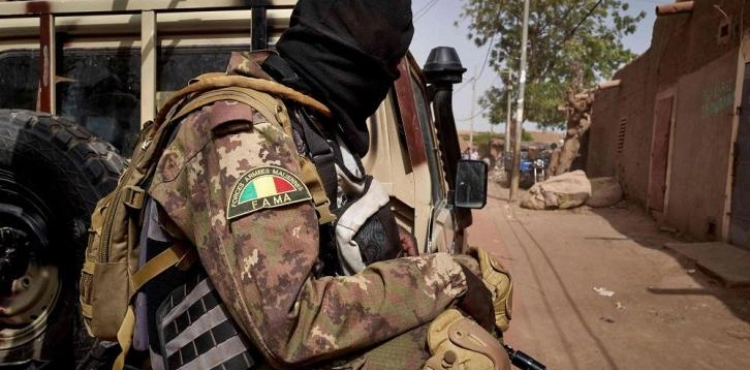The United States has suspended all forms of military support to Mali following the coup that was carried out by the military in the African country and the arrest of the head of state, according to what a senior American official said Friday.
"There is no more training or support for the Malian armed forces. We have stopped everything until the situation becomes clear to us," the US envoy to the Sahel region of Africa, Peter Pham, told reporters.
"We do not know who exactly are the forces involved in the rebellion (...) or to whom they are loyal," the diplomat added.
Malian President Ibrahim Boubacar Keita, accused of corruption and mismanagement, resigned after his arrest Tuesday by the military following several weeks of popular protests.
The military group that seized power said it wanted to install a "transitional council", the head of which could be either "military or civilian."
Pham explained that the US government is "communicating" with the National Committee for the Rescue of the People, which is made up of the military who overthrew the president and his government.
He added, "These contacts exist, and they do not mean recognition (of the military group). Rather, these people have a degree of control over some matters."
He pointed out that the rebellion "will definitely not help" the multinational forces that are dealing with jihadist groups on the coast, noting that the United States will continue to support and partner with the various ongoing operations.
Washington provides, in particular, support in the field of intelligence and surveillance, and logistical transfers for the benefit of France, which has been leading since 2014, Operation Barkhane.
There is also the United Nations Stabilization Mission in Mali, which has been operating since 2013, and it is one of the most important missions of the United Nations organization. In addition to the joint military force established by Mauritania, Mali, Niger, Burkina Faso and Chad in 2017.
"We will work with our partners in the region, the G5 Sahel, the Economic Community of West African States, the African Union, to reduce any negative impact (on the fight against jihadists), but it is clear that a rebellion involving the army will have an effect," Pham added.
He reiterated his country´s call to "return to constitutional order" and release the detainees, especially President Keita, "who is no longer young and has poor health."












